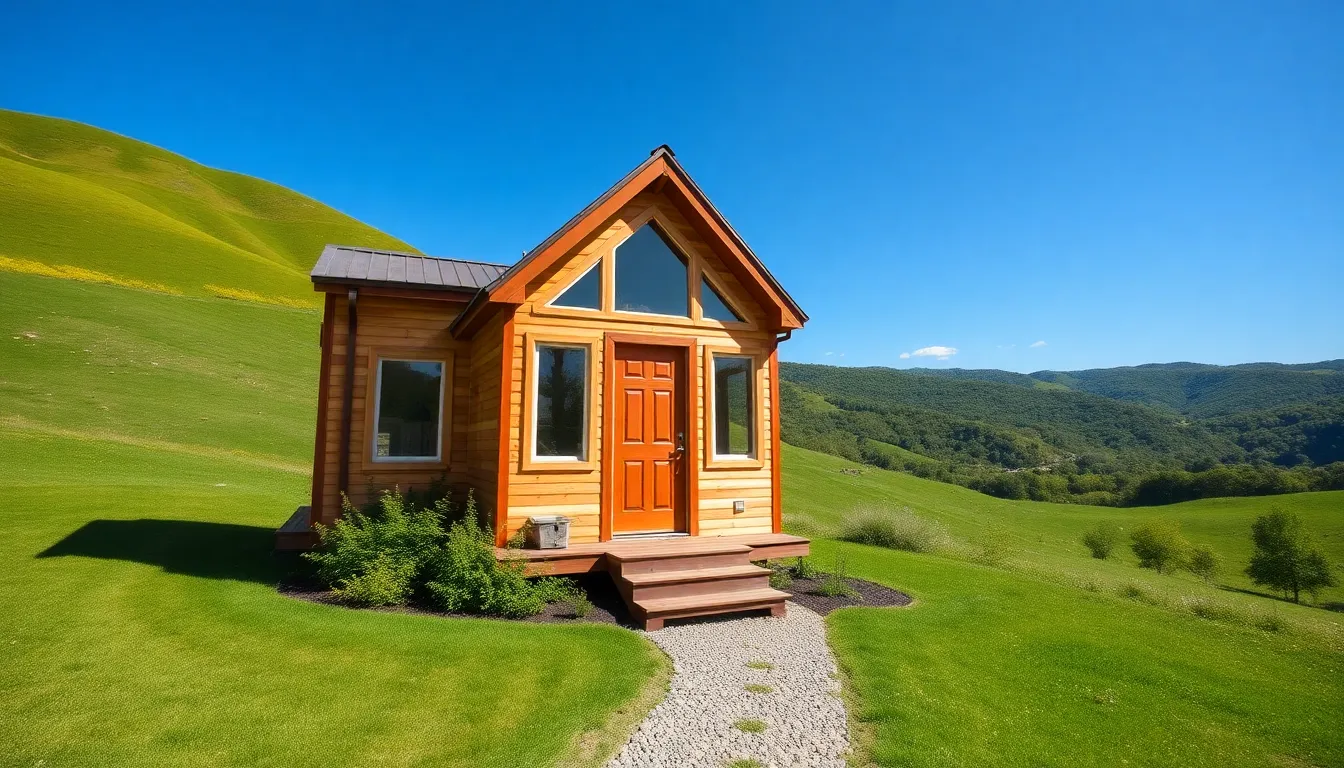Buying a home is often seen as the ultimate American dream, but what if that dream comes in a more mobile package? Enter manufactured homes—affordable, stylish, and surprisingly versatile. They offer a unique solution for those looking to break free from the traditional housing market without sacrificing comfort or style.
Table of Contents
ToggleOverview Of Mortgages For Manufactured Homes
Mortgages for manufactured homes serve a unique segment of the housing market. Various financing options exist specifically tailored for these homes. Lenders often categorize manufactured home mortgages into two main types: personal loans and chattel loans.
Personal loans cover homes classified as real property, typically when the home is permanently affixed to land owned by the homeowner. Chattel loans apply to homes not attached to land, meaning they finance the home itself rather than the property it sits on. Interest rates can vary based on the type of loan, lender, and borrower’s creditworthiness.
In recent years, several government-backed programs emerged to enhance accessibility for manufactured home buyers. The Federal Housing Administration (FHA) provides specific loans for these homes, ensuring lower down payments and more lenient credit requirements. Additionally, the U.S. Department of Agriculture (USDA) offers loans for eligible rural manufactured homes to promote homeownership in underserved areas.
It’s important to understand the eligibility criteria associated with these mortgages. Factors such as income, credit scores, and home specifications play a role in determining qualification. Several lenders also require that manufactured homes meet specific safety standards, further impacting the finance process.
Potential buyers should conduct thorough research and compare lenders. Terms can differ significantly among mortgage providers, affecting long-term affordability. Understanding the unique nuances of manufactured home financing ensures informed decisions for prospective homeowners.
Types Of Mortgages For Manufactured Homes
Understanding various mortgage options available for manufactured homes helps potential buyers make informed decisions. Several types of loans cater specifically to these homes, with unique features and requirements.
Conventional Loans
Conventional loans serve as a primary financing option for manufactured homes classified as real property. These loans often require a higher credit score, typically around 620 or higher. Lenders assess income stability and debt-to-income ratios for approval. Interest rates may vary based on market conditions and borrower qualifications. Buyers might encounter smaller down payment requirements, usually between 3% to 20%. Prominent advantages include flexibility in loan terms and competitive rates.
FHA Loans
FHA loans provide a government-backed option for financing manufactured homes. These loans generally require a lower credit score, often as low as 580 with a 3.5% down payment. Borrowers can secure financing even with limited financial history. FHA loans allow buyers to finance home purchase costs and necessary improvements. Lender limits exist based on location and property type. Advantages include lower upfront costs and more lenient credit requirements.
VA Loans
VA loans offer a favorable option for eligible veterans and active-duty service members seeking to finance manufactured homes. No down payment is required, making homeownership more accessible for those in service. Borrowers must demonstrate eligibility through a Certificate of Eligibility. VA loans feature competitive interest rates, often lower than conventional loans. With no private mortgage insurance requirement, monthly payments decrease significantly. Advantages include favorable terms and a streamlined approval process.
Benefits Of Financing A Manufactured Home
Financing a manufactured home offers several advantages. Buyers can often experience lower costs compared to traditional homes.
Affordability
Manufactured homes typically come at a lower price point than site-built houses. A buyer can save thousands of dollars on the purchase price. Lower maintenance costs add to the overall affordability. Many lenders provide attractive financing options specifically designed for these types of homes. In many cases, this means smaller down payments are acceptable. Various government-backed programs, such as FHA loans, allow individuals with lower credit scores to qualify. Potential homeowners might find that insurance and property taxes on manufactured homes are often reduced.
Flexibility
Financing options for manufactured homes provide considerable flexibility to buyers. Various mortgage types cater to different situations, allowing homeowners to choose what fits best. Those seeking to relocate can easily move a manufactured home if it is not permanently affixed to land. The ability to customize financing terms creates opportunities for varied budgets and financial goals. Buyers can also combine financing with home improvements, as some loan programs permit these enhancements. Additionally, mortgage terms can range from 15 to 30 years, which enables tailored monthly payments. With various lenders available, options for securing a mortgage align with diverse financial needs.
Challenges In Obtaining A Mortgage For Manufactured Homes
Obtaining a mortgage for manufactured homes comes with specific challenges that buyers must navigate. Buyers often face unique obstacles, such as appraisal issues.
Appraisal Issues
Appraisal of manufactured homes can create confusion. Many lenders might undervalue these homes when compared to traditional houses. The market value of a manufactured home depends on several factors, including location, age, and condition. Underestimating these homes’ worth leads to potential financing limits. Appraisers may lack knowledge about manufactured homes, affecting their valuations. This situation can hinder buyers from securing the mortgage amount they need.
Land Ownership Concerns
Land ownership represents a critical factor in financing manufactured homes. Many lenders require that the home be classified as real property, which necessitates buyer ownership of the land. When buyers do not own the land, lenders often categorize the mortgage as a chattel loan. Chattel loans typically carry higher interest rates and less favorable terms. Those who rent the land may find it difficult to secure traditional financing, leading to additional barriers in homeownership. Without proper land ownership, potential buyers face limited options in the mortgage market.
Tips For Securing A Mortgage For Manufactured Home
Securing a mortgage for a manufactured home requires careful planning and attention to detail. Buyers can enhance their chances of approval by focusing on key areas such as credit scores and documentation.
Credit Score Improvement
Improving a credit score plays a crucial role in obtaining mortgage approval. Lenders typically consider scores above 620 for conventional loans. Regularly checking for errors on credit reports helps identify necessary corrections. Paying down existing debts can also boost credit ratings over time. Making timely payments on current bills demonstrates financial responsibility. Consulting with a financial advisor might provide additional strategies for enhancing scores.
Documentation Preparation
Preparing the right documentation significantly streamlines the mortgage application process. Essential documents include proof of income, tax returns for the previous two years, and bank statements. Buyers should also gather details of outstanding debts and current assets. Lenders often require information on the manufactured home itself, such as its age and condition. Ensuring all documents are organized and readily available enhances credibility during the lending process. Engaging with a lender early can clarify what specific paperwork is needed.
Conclusion
Navigating the mortgage landscape for manufactured homes can be a rewarding journey for aspiring homeowners. With various financing options and government-backed programs available, individuals can find solutions tailored to their needs. Understanding the unique challenges and requirements is crucial for success in securing a mortgage.
By focusing on credit improvement and thorough documentation, potential buyers can enhance their chances of obtaining favorable terms. Engaging with knowledgeable lenders will provide clarity and support throughout the process. With the right information and preparation, manufactured homes can represent an attainable path to homeownership.







